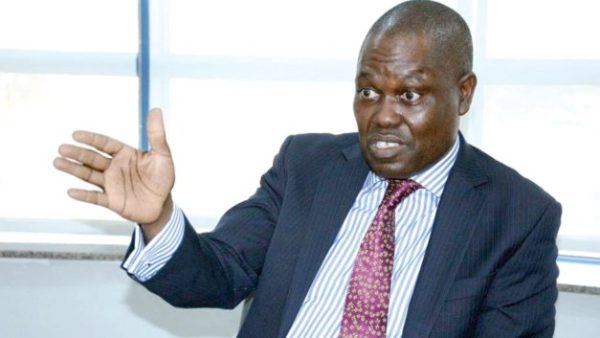Ecobank Transnational Incorporated is holding its 30th Ordinary General Meeting on April 24, 2018 in Lome in a rather optimistic context. The main indicators are green again.
The bank went from a deficit in 2016 to a return of profits in 2017. The net result is 182 million dollars. But nothing is yet acquired. Architect of the current dynamics, Nigerian Ade Ayeyemi knows, the bank located Boulevard Mono in Lomé which has reduced its cost-benefit ratio by reducing its workforce to 15 930 (44% women) and closed many agencies including 75 in Nigeria , must further progress and improve its profitability ratios.
The future passes by the digital and that, the former resident of Citibank understood it well. Since taking office in September 2015, he has made the transformation through digital his workhorse. His perfect knowledge of information systems led him to clean up the bank’s IT division and to personally supervise the launch of the application. With 4 million users on the eve of general meetings and a transfer volume of $ 1 billion, the small app is de facto hope.
The return of the pan-African bank in positive territory is also the work of a staff re-appointed since the end of 2015. In office in Nigeria, Charles Kié has made the largest subsidiary of Ecobank, the first contributor in the net result .
Behind, the UEMOA zone is back in force supported by managers thirsting for victory, like Ecobank Ivory Coast (the best IPO of 2017 in Abidjan), but also by support functions that provide the main directions from headquarters.
It should be said, this task force structured around Mr. Ayeyemi and including in particular, the financial direction, the risk management and, among others, the commercial management, diffuses from the headquarters a set of standards and standards that reduce improvisation of the past and are moving Ecobank into a full-fledged institution.
But, despite the first results of honorable results posted, Ecobank will not be able to do without the economy of a reflection on the fate of certain subsidiaries (Kenya, Tanzania for example) of East Africa which lead the results of the group. The relevance of the division of the business into corporate, SME and individual branches allows analytical segmentation necessary for a better commercial approach to the market without necessarily reducing bad debts. These have increased by 12%, from $ 948 million in 2014 to $ 1.06 billion in 2017. Nigeria has 37% of its bad loans before the UEMOA (19%).
Fiscal year 2018 will, to definitively inaugurate a new era, confirm that of 2017 by hard and fast dividends paid to thousands of shareholders hung on a listed value in Abidjan, Accra and Lagos, in free diving since 2014.



